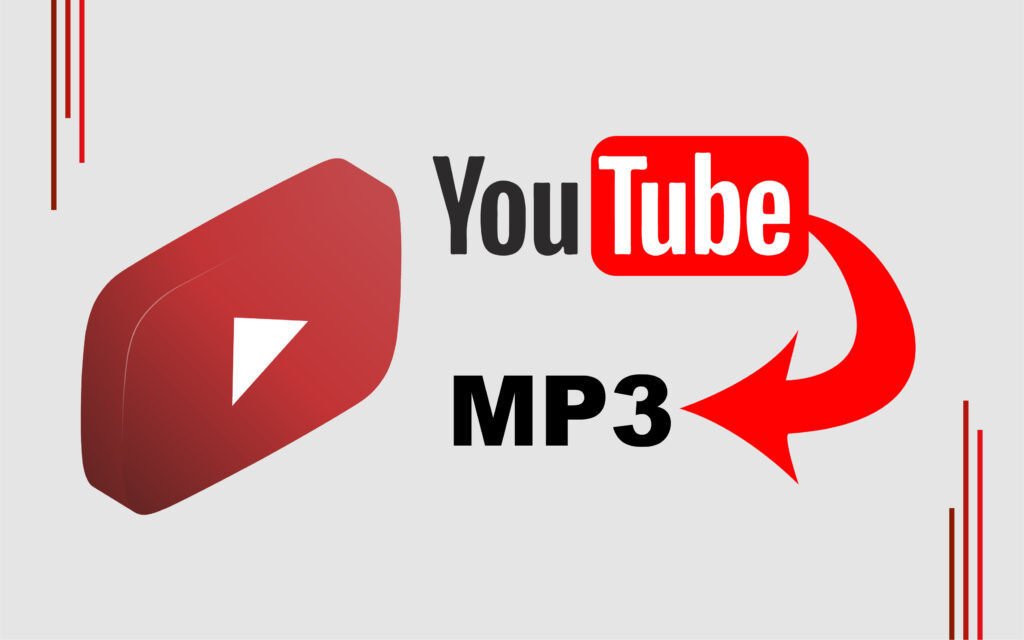Legal and Safe YouTube to MP3 Download Options: What You Need to Know
YouTube to MP3 Convert
With YouTube’s emergence as a hub for music, podcasts, and audiobooks, many users want to download their favorite audio content in MP3 format for later listening. While YouTube to MP3 converters are commonly available, it is critical to be aware of the legal and safety implications before downloading anything. This post will look at what makes a YouTube to MP3 converter legal and safe, as well as how to make an informed decision when choosing a program to convert YouTube videos to MP3.
Why Do People Choose YouTube to MP3 Converters?
Downloading YouTube videos as MP3 files has various benefits:
- Offline Listening: Users who have downloaded MP3s can listen to the content without an internet connection.
- Portable Format: MP3 files can be easily transferred between devices.
- Custom playlists: Users can create their own playlists without relying on streaming services.
However, these conveniences come with inherent hazards and legal implications.
“Using YouTube to MP3 converters can be convenient, but it’s essential to understand what’s allowed legally and how to stay safe online.”

Legal Considerations for YouTube to MP3 Conversion
YouTube’s Terms of Service expressly forbid downloading content without authorization, unless a download option is available. Here are some rules for utilizing YouTube to MP3 converters legally.
- Download Only Your Own Content: If you’re downloading videos that you’ve posted yourself or have clear permission from the creator, a converter should work fine.
- Use YouTube’s Download Feature: Premium subscribers have offline access through the YouTube app. While it does not support MP3 downloads, it is a legal alternative.
- Respect Copyright: Downloading copyrighted content without permission violates YouTube’s policy and copyright law. Check the licensing details for public domain or Creative Commons-licensed content to ensure that the creator allows for downloads and reuse.
The safest legal method is to only use content that you own or that is openly available for download and reuse.
How to Identify Safe YouTube to MP3 Converters.
Using YouTube to MP3 converters from unknown or untrustworthy sites can leave your device vulnerable to malware, phishing attacks, and personal data theft. Here’s what you should check for when choosing a safe converter:
1. Reputable Site:
Stick to well-known platforms with substantial user bases. Avoid strange websites, particularly those that contain pop-up advertising or redirect links.
2. No Download Requirement
Browser-based converters are often safer because they do not require you to download additional software. Look for a website that uses a secure “https” connection.
3. User reviews:
Check for reviews or feedback from other users, particularly on forums such as Reddit or Trustpilot, to determine the tool’s dependability.
4. Minimal permissions:
If you’re using an app-based converter, be sure it just requires the necessary permissions. If a converter asks for access to contacts, media, or sensitive information, consider it a red flag.
Popular Safe Converters:
- 4K YouTube to MP3: This program is noted for its simple user interface and emphasis on safety. While it requires a download, it has a strong track record for security.
- YTMP3.cc: An online converter that does not require downloads, making it simple to use and accessible.
- Clip Grab is an open-source app that does not display advertisements or track users. It’s known for giving high-quality MP3 downloads.

Risks of Using Unsafe YouTube to MP3 Converters
Using an unsafe converter can expose you to a number of problems, including:
- Malware and viruses: Infected converters might introduce malware into your system, jeopardizing its security.
- Data Harvesting: Some converters harvest user information for advertising purposes or sell it to third parties, raising privacy concerns.
- Quality Issues: Unreliable converters may output low-quality audio or compress data in a way that degrades listening quality.
To reduce these hazards, only use trusted websites and converters, read user reviews, and consider using antivirus software.
How to Use a YouTube MP3 Converter Safely
Here’s a step-by-step guide on how to use a YouTube to MP3 converter safely:
- Choose a Trusted Converter: Choose a respected converter from the options listed above or one with positive online reviews.
- Paste the URL: Copy and paste the link to the YouTube video into the converter’s input box.
- Select Quality Settings. Choose higher quality (e.g., 320kbps) for the greatest audio experience. Some converters provide many quality levels; better quality settings are best for music.
- Download and Scan: After downloading, run antivirus software to check the file is safe to open.
- Store Files Responsibly: Organize and rename files properly to help you manage your offline library more efficiently.

Frequently Asked Questions (FAQ)
- Is it legal to use YouTube-to-MP3 converters?
Using converters to download your own content or anything licensed for free distribution is generally allowed. However, downloading copyrighted material without authorization is generally illegal.
- Can I get banned from YouTube for using a converter?
YouTube does not actively prohibit users from utilizing converters, but it does discourage downloading content in methods that violate its terms of service.
- What format is best for quality?
For high-quality music, use 320kbps MP3 or, if available, a lossless file like FLAC. High bitrate options maintain greater audio detail.

Conclusion:
Enjoy YouTube content legally and safely.
Downloading YouTube content in MP3 format for offline listening is convenient, but you must use safe tools and utilize them carefully. You may enjoy your favorite YouTube content as audio files while remaining safe by adhering to legal content, using trusted converters, and securing your device. A little caution goes a long way toward ensuring that your offline music library is legal and secure.
“Choose wisely: safe YouTube to MP3 conversion starts with understanding the legalities and using trusted tools.”


4 Comments